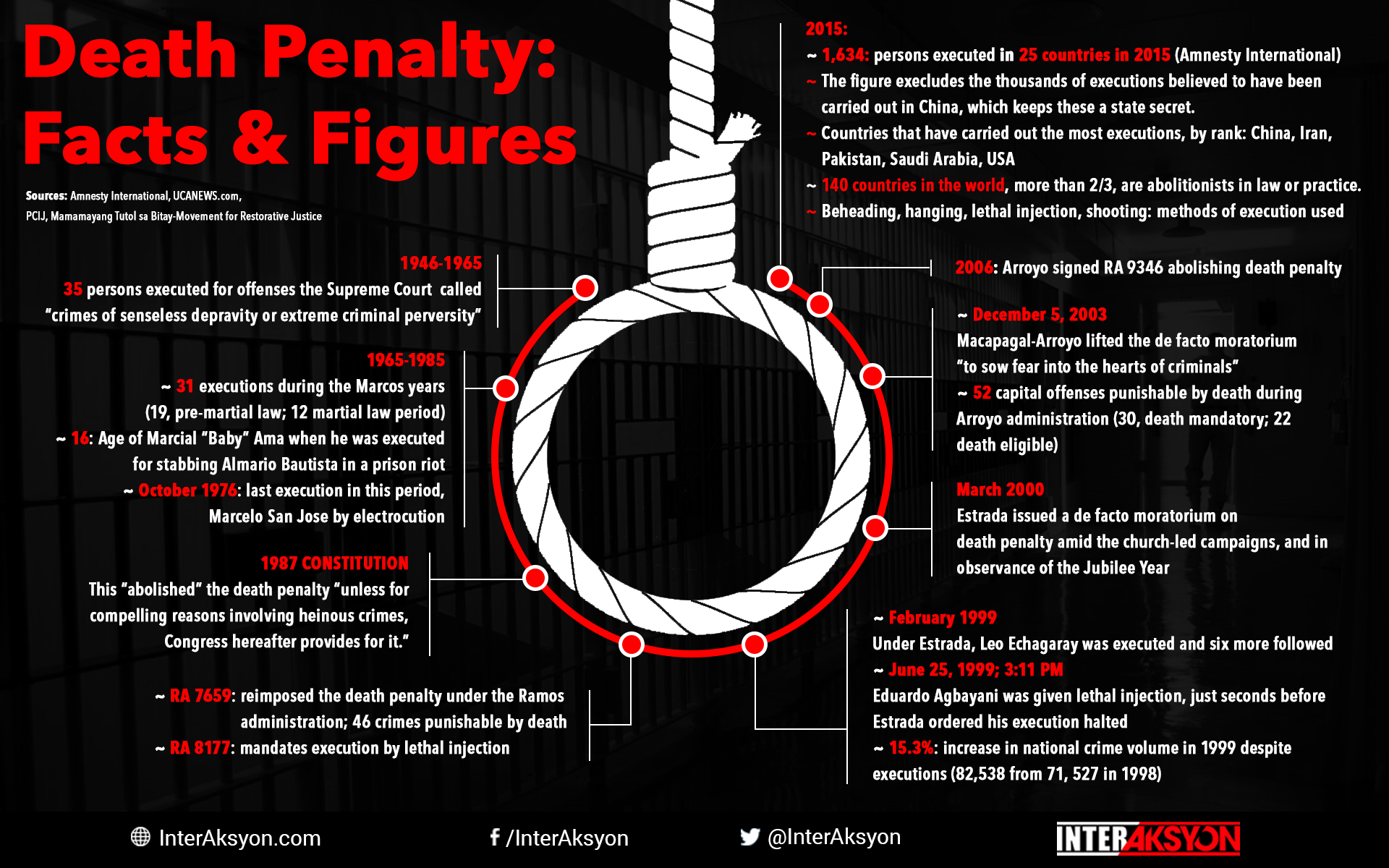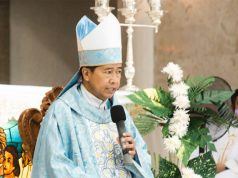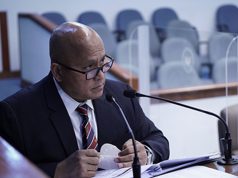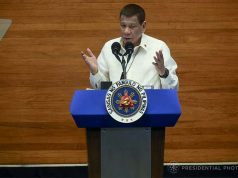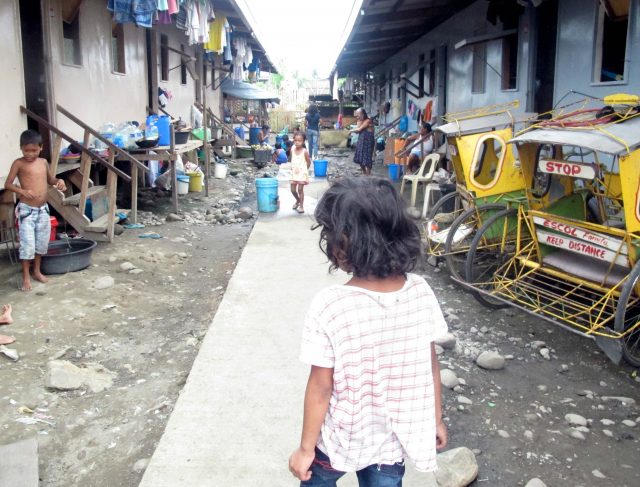
MANILA – A little over half of Filipinos (55%) favor keeping the minimum age of criminal liability at 15 years old, according to the latest Pulse Asia survey released Friday.
The pollster also reported that support for the death penalty – restoration of which is a priority legislation – has eased from 81 percent in July 2016 to 67 percent in March 2017, but still represents majority support.
The opinion on keeping the lowest age of criminal liability at 15 is “echoed by big pluralities to sizeable majorities across geographic areas and socio-economic classes (45% to 63% and 48% to 58%, respectively),” Pulse Asia said in a media release from its president, Prof. Ronald Holmes.
“Those in the rest of Luzon are more in favor of keeping the minimum age of criminal liability at 15 years old than their counterparts in Metro Manila and the Visayas (63% versus 45% to 47%).
At least 20% of Filipinos favor pegging the lowest age of criminal liability at 12 years old, as some quarters are pushing as part of the anti-crime arsenal of measures, while 9% say it should be 9 years old, the survey showed.
“As for other responses which are volunteered by survey respondents, 13% say the minimum age of criminal liability should be between 16-25 years old, 2% say it should be 10-11 years old, and 1% favor having it at 13-14 years old,” said Pulse.
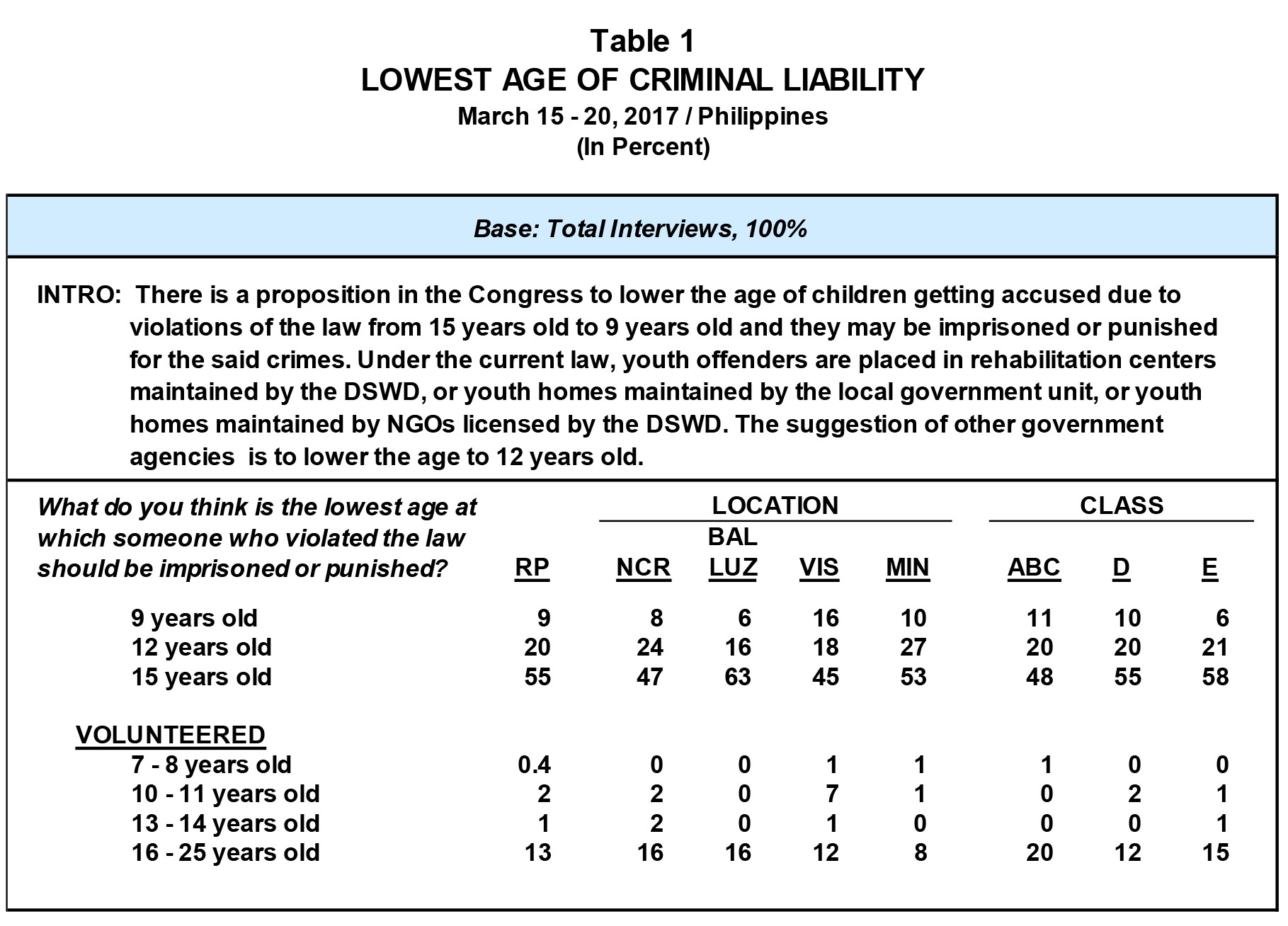
Support for the death penalty eases
Between July 2016 and March 2017, support for the death penalty declined by 14 percentage points, although it continues to be expressed by majority of Filipinos (67%) as of March.
The 67% figure is lower than the level of support recorded by Pulse Asia Research in July 2016 (81%). “This view is expressed by majorities in every geographic area and socio-economic grouping (61% to 74% and 66% to 68%, respectively).”
A fourth of Filipinos (25%) oppose death penalty, while the rest (8%) are unable to say whether they support or do not support capital punishment.
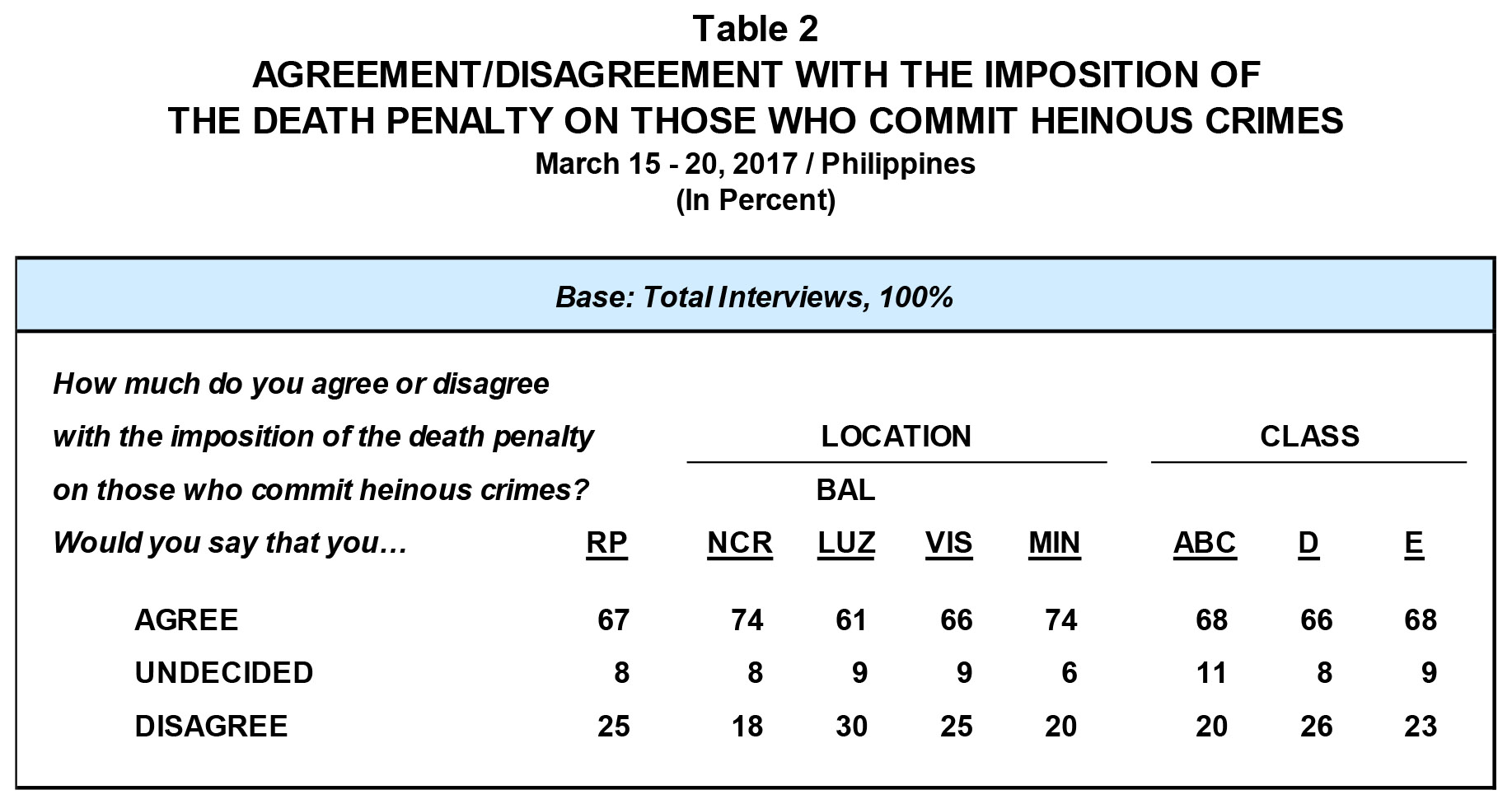
Among those who are pro-capital punishment, the most often cited crime which should be made punishable by death is rape (97%); few changes in public opinion on this matter may be noted between July 2016 and March 2017.
As far as most of those in favor of the death penalty are concerned, rape (97%), murder (88%), and drug pushing (71%) are among the crimes which ought to be made punishable by death.
In the latest discussions in Congress, lawmakers pushing for restoring death penalty – which was abolished in 2006 – have been saying they will likely be pitching a provision to limit imposition of capital punishment to the most serious drug-related offenses.
Majorities across geographic areas and socio-economic classes say those found guilty of rape (96% to 99% and 94% to 100%, respectively), murder (74% to 95% and 84% to 92%, respectively), and drug pushing (61% to 81% and 66% to 77%, respectively) should be given the death penalty.
Fewer Filipinos supportive of the death penalty think kidnap-for-ransom (46%) and plunder (33%) should be covered by such punishment, Pulse said. However, most Metro Manilans (55%), Visayans (59%), and those in Class ABC (57%) support the imposition of capital punishment for kidnap-for-ransom and plunder while a bare majority of those in Class ABC (51%) are in favor of the death penalty in plunder cases.
While the overall figures are generally unchanged between July 2016 and March 2017, a few movements may be observed across geographic areas and socioeconomic classes. More Visayans now support imposing the death penalty for murder cases than in July 2016 (91% versus 75%). As regards kidnap-for-ransom cases, support for capital punishment declines in the rest of Luzon (-13 percentage points) but goes up in the Visayas (+20 percentage points). With regard to plunder cases, more Visayans are currently in favor of having the death penalty compared to July 2016 (40% versus 27%).
Context of survey
The survey fieldwork for what Pulse Asia calls its Ulat ng Bayan national survey was conducted from March 15 – 20, 2017 using face-to-face
interviews
The following developments, said Pulse Asia, preoccupied Filipinos in the weeks leading up to the survey period as well as during the actual conduct of field interviews:
• The filing of an impeachment complaint against President Rodrigo R. Duterte on March 16 by Magdalo Party List Representative Gary Alejano on charges of betrayal of public trust, culpable violation of the Philippine Constitution, bribery, corruption, and the commission of other high crimes;
• The filing of an impeachment complaint against Vice-President Maria Leonor G. Robredo on March 20 by Atty. Oliver Lozano on the grounds that
she also violated the Constitution and betrayed public trust;
• The claims by retired SPO3 Arturo Lascañas before the Senate regarding the killings he took part in as a member of the so-called Davao Death Squad (DDS) and which were supposedly ordered by then Davao City Mayor Duterte;
• The Senate investigation into the abduction and murder of South Korean businessman Jee Ick-Joo inside Camp Crame in October 2016, the surrender of alleged mastermind SPO3 Ricky Sta. Isabel following the issuance of an arrest warrant against him in January 2017, and his issuance of an affidavit implicating Superintendent Rafael Dumlao of the Philippine National Police (PNP) AntiIllegal Drugs Group and Senior Superintendent Allan Macapagal of the PNP Anti-Kidnapping Group in the crime;
• The suspension of “Oplan Tokhang” on 30 January 2017 in the aftermath of the Jee Ick-Joo case and its relaunching on 06 March 2017 under the name “Oplan Double Barrel, Reloaded”;
• The issuance by Amnesty International (AI), the Human Rights Watch (HRW), and the United States (US) of separate reports highly critical of the administration’s “war on illegal drugs”;
• The video message of VP Robredo shown during the annual meeting of the UN Commission on Narcotic Drugs in Vienna on March 16, wherein she highlighted the issue of extrajudicial killings arising from President Duterte’s campaign against antiillegal and denounced the so-called “palit-ulo” scheme by the police;
• Another Senate investigation, this time into the supposed P 50 million bribery attempt involving officials of the Bureau of Immigration (BI) and Hong Kong-based gambling tycoon Jack Lam;
• The President’s issuance of an executive order (EO) mandating the PNP and the National Bureau of Investigation (NBI) to embark on an anti-illegal gambling campaign targeting gambling syndicates and unlicensed gambling operators;
• The resumption of the peace talks between the Philippine government and communist rebels as well as the reinstatement of their unilateral ceasefire declarations following meetings in The Netherlands held on 10-11 March 2017;
• The threat made by Duterte that he will declare martial law in Mindanao if violence continues in the area;
• The approval, on third reading, by the House of Representatives of the proposal to reimpose the death penalty for heinous drug-related crimes via a vote of 217- 54, with a single abstention;
• The arrest of Senator Leila M. de Lima, on 24 February 2017, on charges that she operated a drug-trafficking ring while serving as the Department of Justice (DOJ) Secretary;
• The ruling of the SC, sitting as the Presidential Electoral Tribunal (PET), that the electoral protest filed by former Senator Ferdinand R. Marcos, Jr. contesting the results of the May 2016 vice-presidential race is sufficient in form and substance and, as such, the SC will proceed to conduct hearings on the matter;
• The release of a series of online articles called #NagaLeaks purportedly containing information against Vice-President Robredo, her deceased husband, and the LP, of which she is a member;
• The manifestation submitted by the Office of the Solicitor General (OSG) to the 13th Division of the Court of Appeals (CA) recommending the acquittal of Ms. Janet Lim-Napoles in the illegal detention case filed against her by whistleblower Benhur Luy;
• The decision of the Office of the Ombudsman to clear former President Benigno S. Aquino III and to charge former Department of Budget and Management (DBM) Secretary Florencio Abad with usurpation of legislative power in connection with the Disbursement Acceleration Program (DAP) case;
• The magnitude 6.7 earthquake which struck the province of Surigao del Norte on 10 February 2017;
• The confirmation of the appointments of DepEd Secretary Leonor Briones and DOJ Secretary Vitaliano Aguirre III; the rejection of the appointment of DFA Secretary Perfecto Yasay, Jr. over questions concerning his citizenship; the bypassing of DAR Secretary Rafael Mariano, DOH Secretary Paulyn Jean Ubial, DSWD Secretary Judy Taguiwalo, and DENR Secretary Gina Lopez; the removal of National Irrigation Administration (NIA) Chief Peter Laviña amid charges of corruption; and the appointment of Sandiganbayan Associate Justice Samuel Martires as President Duterte’s first appointee to the SC;
• The orders issued by DENR Secretary Lopez to suspend five mining firms, close 23 mining operations, and cancel 75 mining contracts as part of the DENR’s campaign against “indiscriminate mining”; the opposition to the confirmation of DENR Secretary Lopez by mining companies and other sectors adversely affected by her policy decisions;
• The forcible takeover by around 5,000 informal settlers from Metro Manila and Bulacan of government houses located in Pandi and San Jose del Monte City, both in Bulacan, to protest the government’s failure to address the housing problem in the country;
• The resurgence of tension resulting from the presence of Chinese military vessels in the vicinity of Benham Rise and China’s reported plans to build a radar station in Panatag Shoal;
• The increase in headline inflation to 3.3% in February 2017 from 2.7% the previous month – the fastest rise in prices in 27 months as stated by the Philippine Statistics Authority (PSA); the continued depreciation of the local currency vis-à-vis the US dollar; the increase in the minimum fare for jeepneys and the base rate for taxis as well as in the power rates in Metro Manila; and the release of the additional pension for pensioners of the Social Security System (SSS) amounting to P 1,000 monthly.
The nationwide survey is based on a sample of 1,200 representative adults 18 years old and above. It has a ± 3% error margin at the 95% confidence level. Subnational estimates for each of the geographic areas covered in the survey (i.e., Metro Manila, the rest of Luzon, Visayas and Mindanao) have a ± 6% error margin, also at 95% confidence level.
For more information on the death penalty debate, you may also view Interaksyon infographic below:
